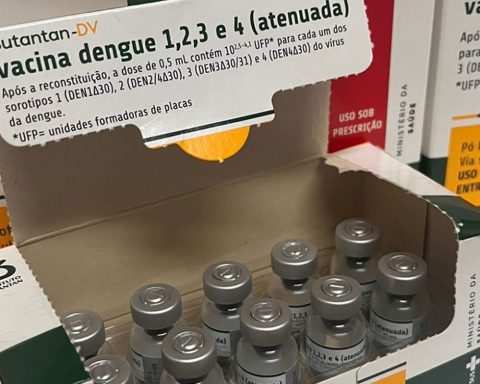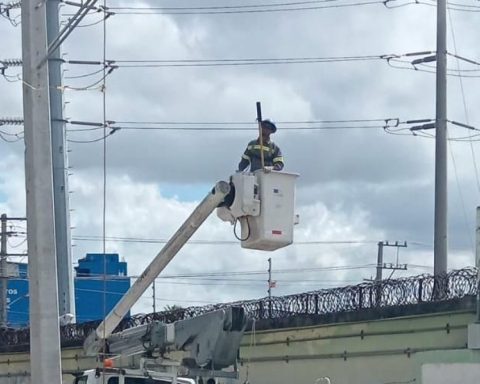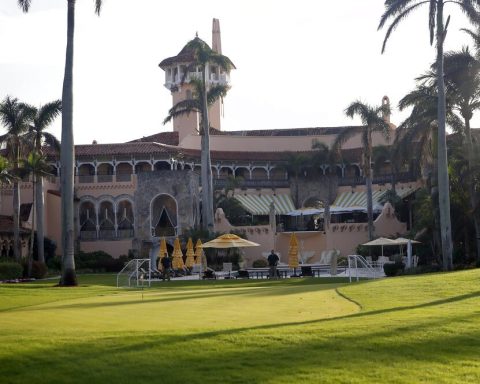The fight against illegal extraction and illegal gold trade in Brazil has resulted in an 84% drop in gold production recorded in the country’s mines. According to the Escolhas Institute, the decrease in production is related to control measures adopted by the Brazilian government in 2023.
Among the measures cited by the institute is the mandatory use of electronic invoices for the trade of gold in the mines. “Until now, invoices were on paper, filled out by hand, opening the way for fraud and making it difficult for the authorities to control them,” says the study.
Another significant measure for this “immediate market” result was the end of gold transactions in mines “based on the good faith of those involved”. This is what the study shows. Gold in Shock: Measures that Shook the Marketreleased this week by the institute.
“Proof of this is that, in 2022, the mines recorded a production of 31 tons of gold. In 2023, after the changes, the volume fell to 17 tons, a decrease of 45%”, says the study when presenting an assessment of the impact of the changes in the rules of the gold trade. This reduction of 14 tons of gold is equivalent to R$ 4.3 billion.
In 2024, the decline is already even more pronounced. Between January and July, the volume of production from the mines is 84% lower than that recorded in the same period in 2022.
The study shows that more than 70% of this drop in production of the valuable metal occurred in the Pará mines. According to the survey, the reduction reached 57% (which corresponds to 10 tons) in the volume of gold produced between 2022 and 2023 in Pará soil. Of the total, the reduction of 6 tons was in just one municipality: Itaituba, in the southwest of Pará.
“Between January and July 2024, the decline in the state’s mining production is already 98% compared to the same period in 2022,” added the institute.
The study reports that, according to official records, Brazil exported more gold than it produced until 2022 – around 7 tons more on average. “This number is an indication of illegality in the market, as it points to volumes of gold that were possibly not registered in official production, but reached foreign markets in recent years,” says the study.
“In 2023, this pattern changed,” he added, reporting that, in that year, Brazilian gold production registered a surplus of 8 tons in relation to exports. “This may indicate that this surplus was sold through channels other than official exports,” he added.
Exports
Given this more controlled scenario, gold exports fell 29% in 2023; and 35% between January and July 2024 – a volume 35% lower than that recorded in the same period in 2022.
The states that recorded the biggest drop in gold exports in 2023 were São Paulo, “which does not produce gold, but transports the metal from mines in the Amazon”; and Mato Grosso, where extraction by mines predominates.
Regarding the destination, the institute draws attention to the drop in exports to India, the United Arab Emirates and Belgium. Together, these countries stopped buying 18 tons of gold, mainly from São Paulo, Mato Grosso, Rio de Janeiro and the Federal District.
Closed doors to illegal gold
“The gold market went into shock. Officially registered production and exports fell significantly, even in a scenario of very high gold prices, which would tend to increase these numbers,” the study detailed, stating that this movement shows that “an important door has been closed to illegal gold,” increasing the costs and risks of illicit operations involving gold that was previously easily heated and exported as legal.
According to the Research Director at Instituto Escolhas, Larissa Rodrigues, whenever legal control measures are implemented, there is naturally an increase in costs for those who produce or sell gold illegally, including abroad.
“And by increasing the cost of illicit activity, we stifle the illegal market,” the researcher told Brazil Agency.
According to the director, these measures are just the beginning of a project that aims to promote a complete transformation in the sector. “Combating illegal extraction must be a priority, because it causes enormous environmental and social damage that is difficult to reverse,” she explains.
The Escolhas Institute suggests, as the next steps to be taken, that the government increase the requirements for permits for gold mining and the presentation of financial guarantees for the fulfillment of environmental and social obligations by mining companies.
It was also suggested that inspections of the activity be reinforced; that mining processes be cancelled in places where the activity is not permitted, such as indigenous lands and conservation units; and that a mandatory system for tracking the origin of gold be created.
History
In early 2023, the damage caused by illegal mining gained greater visibility due to problems related to humanitarian crisis in the Yanomami Indigenous Landin Roraima. But public institutions and non-governmental organizations have been warning about the scenario in recent years. The expansion of mining in the Brazilian Amazon quadrupled between 2010 and 2020, according to a dossier by Alliance in Defense of Territoriesan entity created in 2021 by indigenous peoples.















